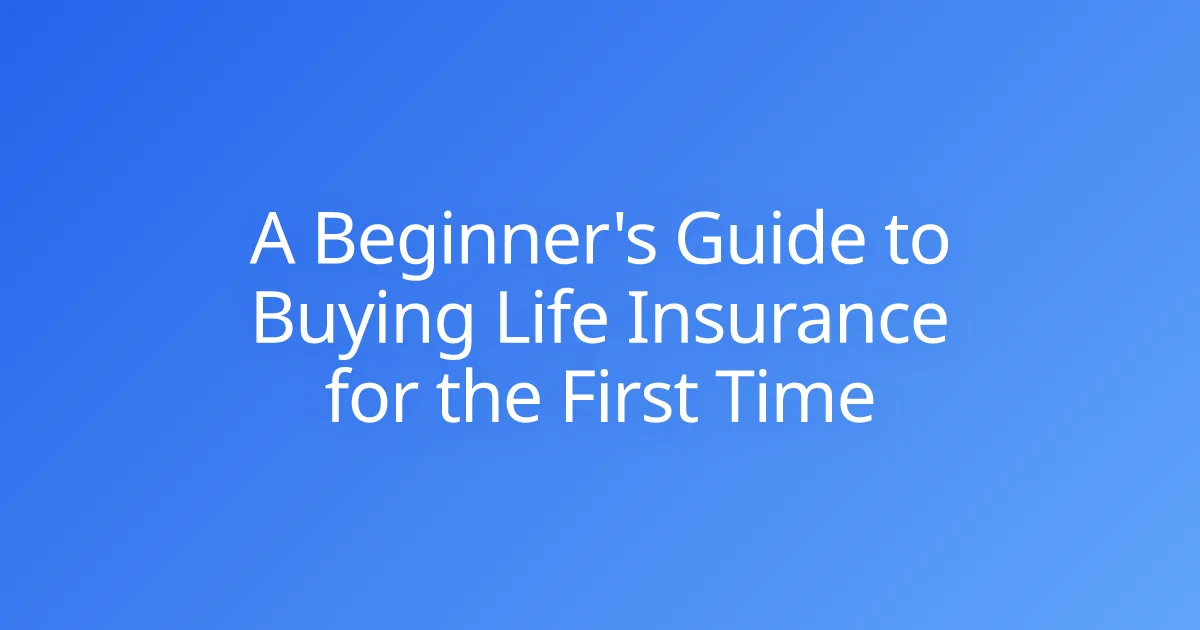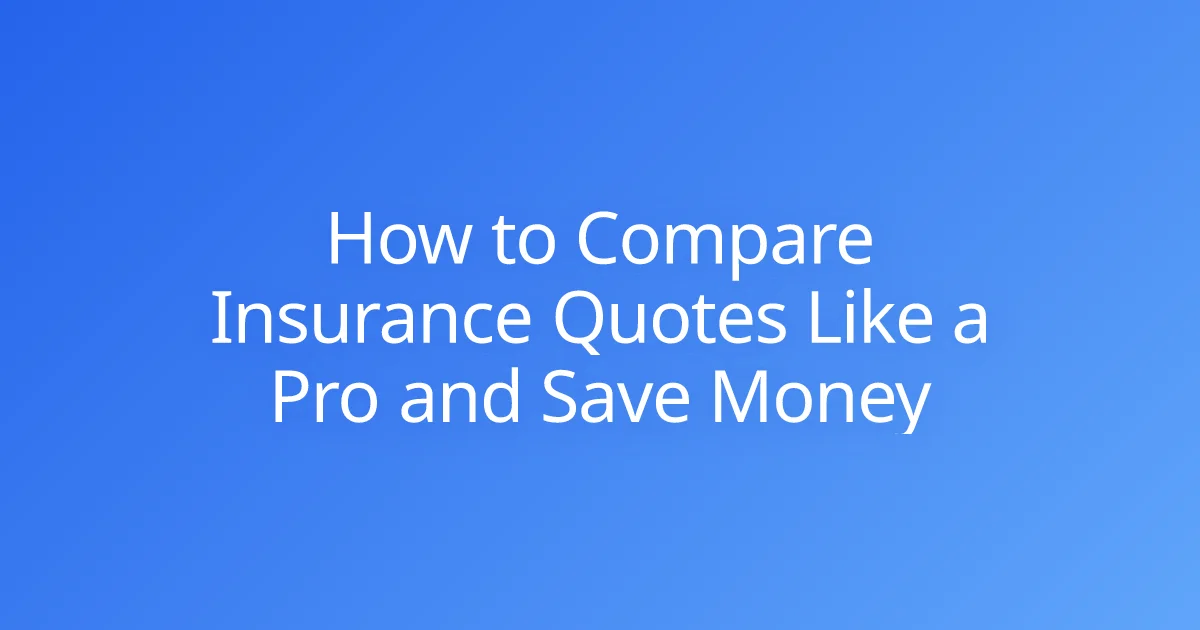How to Choose the Best Insurance Company for Your Needs
In a sea of advertisements, online quotes, and endless options, deciding how to choose the best insurance company can feel like an overwhelming task. With so many providers promising the lowest rates or the best coverage, it's easy to get lost in the noise, potentially leading you to settle for a policy that's either insufficient in protection or unnecessarily expensive. Your choice of insurer is far more critical than just the monthly premium; it dictates your financial security and peace of mind when life's unexpected events strike.
At The Policy Explainer, we understand that finding the right fit is paramount. This comprehensive guide will empower you to confidently navigate the insurance landscape. We'll break down the crucial factors to consider, walk you through a step-by-step process, and reveal expert strategies to help you choose the best insurance company for your needs, ensuring you get robust coverage, excellent service, and a fair price.
Why Your Choice of Insurance Company Matters
Your insurance company isn't just a bill you pay each month; it's your financial safety net. When disaster strikes, their performance directly impacts your recovery.
The True Test: Claims Handling
The real value of an insurance company is revealed during the claims process. A company with efficient, fair, and empathetic claims handling can turn a stressful event into a manageable situation. Conversely, a company known for delays, denials, or poor communication can exacerbate an already difficult time. Your choice directly affects how quickly and smoothly you can get back on your feet after a loss.
Beyond the Premium: The Value Proposition
While price is a significant factor, the best insurance company isn't always the cheapest. Value encompasses a balance of competitive premiums, comprehensive coverage, excellent customer service, and robust financial stability. Focusing solely on the lowest premium without considering these other elements can lead to significant financial exposure in the long run.
Long-Term Relationship and Adaptability
Insurance is often a long-term relationship. Your needs will change over time – you'll buy a new car, move homes, get married, or have children. A strong insurance company can adapt with you, offering a range of products, consolidating policies, and providing consistent service as your life evolves.
Key Factors to Consider When Choosing an Insurance Company
To select the best insurance company, you need to evaluate them on multiple dimensions beyond just the price tag. Here are the core factors to analyze:
1. Financial Strength and Stability
This is paramount. An insurer's financial strength indicates its ability to pay out claims, especially large or widespread ones.
- How to check: Look for ratings from independent financial rating agencies like A.M. Best, Standard & Poor's (S&P), Moody's, or Fitch. A rating of "A" or higher generally indicates excellent financial stability.
- Why it matters: You want to be confident that your insurer will be there to cover your losses, even during economic downturns or widespread catastrophes.
2. Customer Service and Claims Handling Reputation
An insurer's reputation for service, particularly during claims, is critical.
- How to check:
- Online Reviews: Read reviews on independent sites, but take individual anecdotes with a grain of salt and look for patterns.
- Customer Satisfaction Surveys: Look for J.D. Power, Consumer Reports, or similar ratings.
- State Insurance Department Complaints: Many state insurance departments publish complaint ratios or data, indicating how many complaints a company receives relative to its size.
- Ask for Referrals: Talk to friends, family, and colleagues about their experiences.
- Why it matters: A company with a fair, efficient, and empathetic claims process will save you immense stress and potential financial hardship after an incident.
3. Coverage Options and Customization
Does the company offer the specific types of coverage you need, and can they customize policies to fit your unique situation?
- Types of Policies: Do they offer auto, home, life, renters, umbrella, or business insurance? Bundling multiple policies with one insurer can often lead to significant discounts.
- Endorsements/Riders: Can you add specific protections like scheduled personal property coverage, water backup endorsement, or identity theft protection?
- Flexibility: Can they easily adjust your policy as your needs change?
- Why it matters: The best company offers not just standard coverage, but also the flexibility to tailor your policy to your exact requirements, ensuring you're neither over- nor underinsured.
4. Competitive Pricing and Discounts
While not the sole factor, price is important.
- Compare "Apples-to-Apples" Quotes: Ensure you're comparing policies with identical coverage limits, deductibles, and specified features.
- Available Discounts: Inquire about all possible discounts you might qualify for (e.g., multi-policy, safe driver, good student, home safety features, payment options).
- Why it matters: Finding competitive rates ensures you're getting good value for your money, especially when coupled with strong service and stability.
5. Accessibility and Support
How easy is it to interact with the company?
- Digital Tools: Do they offer a user-friendly website, mobile app for policy management, online claims filing, and digital ID cards?
- Agent Support: Do they have local agents who can provide personalized advice, or are they an online-only provider? Consider your preference for human interaction versus digital convenience.
- Customer Service Channels: Can you reach them by phone, email, chat, or in-person?
- Why it matters: Easy access to your policy information and support is crucial for quick adjustments, payment, or claims processing.
Your Step-by-Step Guide to Choosing the Best Insurance Company
Follow these steps to conduct a thorough and effective search for the ideal insurance provider.
Step 1: Assess Your Specific Needs and Risks
Before you even get quotes, understand what you need to protect.
- List Your Assets: Cars (year, make, model), home (value, features), valuables (jewelry, art), income.
- Evaluate Your Risks: Are you a safe driver? Do you live in a flood zone? Do you have dependents who rely on your income?
- Determine Desired Coverage: What minimum liability limits do you need? What deductibles are you comfortable with?
Step 2: Research Potential Companies
Don't just go with the first name you see.
- Start with Reputable Insurers: Begin with well-known national carriers and also consider strong regional companies.
- Check Financial Ratings: Use websites like A.M. Best, S&P, etc., to verify financial stability.
- Read Reviews and Complaints: Look at aggregate customer satisfaction scores and complaint data.
Step 3: Gather Multiple Quotes
Contact several insurers to get quotes based on your identified needs.
- Be Consistent: Provide identical information (coverage limits, deductibles, vehicle details, home features) to each company to ensure an "apples-to-apples" comparison.
- Use Various Channels: Get quotes directly from insurers' websites, from captive agents (who work for one company), and from independent agents (who work with multiple companies).
Step 4: Compare Quotes Beyond Just Price
Create a spreadsheet or checklist to systematically compare:
- Premium: The total cost over the policy term.
- Coverage Limits: Ensure they match.
- Deductibles: Confirm consistency.
- Included Endorsements/Riders: Note any added value.
- Available Discounts: See if one company offers more savings opportunities for your profile.
- Customer Service Ratings: Include these qualitative factors in your comparison.
Step 5: Ask Questions
Don't hesitate to clarify anything unclear in the quotes or policy documents.
- "What are the common exclusions for this policy?"
- "Are there any other discounts I might qualify for?"
- "What is your typical claims process like?"
- "How often do you adjust rates for loyal customers?"
Step 6: Make Your Informed Decision
Weigh all the factors. The best insurance company for your needs might not be the cheapest, but it will offer the right balance of financial strength, coverage, service, and competitive pricing.
Common Mistakes to Avoid When Choosing an Insurer
Steering clear of these pitfalls will help you make a smarter choice.
- Only Shopping on Price: This is the biggest mistake. A low premium with poor coverage or claims service can be disastrous.
- Not Researching Customer Service: You don't want to find out an insurer has a terrible claims reputation when you desperately need their help.
- Ignoring Financial Stability Ratings: A company that can't pay its claims is worthless, regardless of its low premiums.
- Failing to Compare "Apples-to-Apples": Ensure coverage limits, deductibles, and benefits are identical across all quotes for a fair comparison.
- Not Asking About Discounts: You might be leaving money on the table. Always inquire about all available discounts.
- Waiting Until the Last Minute: Give yourself ample time to research and compare. Rushing can lead to overlooked details and poor decisions.
Conclusion
Choosing the best insurance company for your needs is a pivotal financial decision that extends far beyond just selecting the lowest price. It's about finding a reliable partner who will stand by you when you need them most, offering comprehensive protection, excellent service, and competitive value. By methodically evaluating financial strength, customer service reputation, coverage options, pricing, and accessibility, you empower yourself to make an informed choice that safeguards your assets and provides invaluable peace of mind.
Taking the time to research and compare thoroughly is an investment that pays dividends in both financial security and a smooth experience during a claim. Don't let your insurance decision be an afterthought; make it a strategic move for your future. Do you have any specific concerns about a particular type of insurance, or perhaps a unique situation that makes choosing an insurer challenging?



